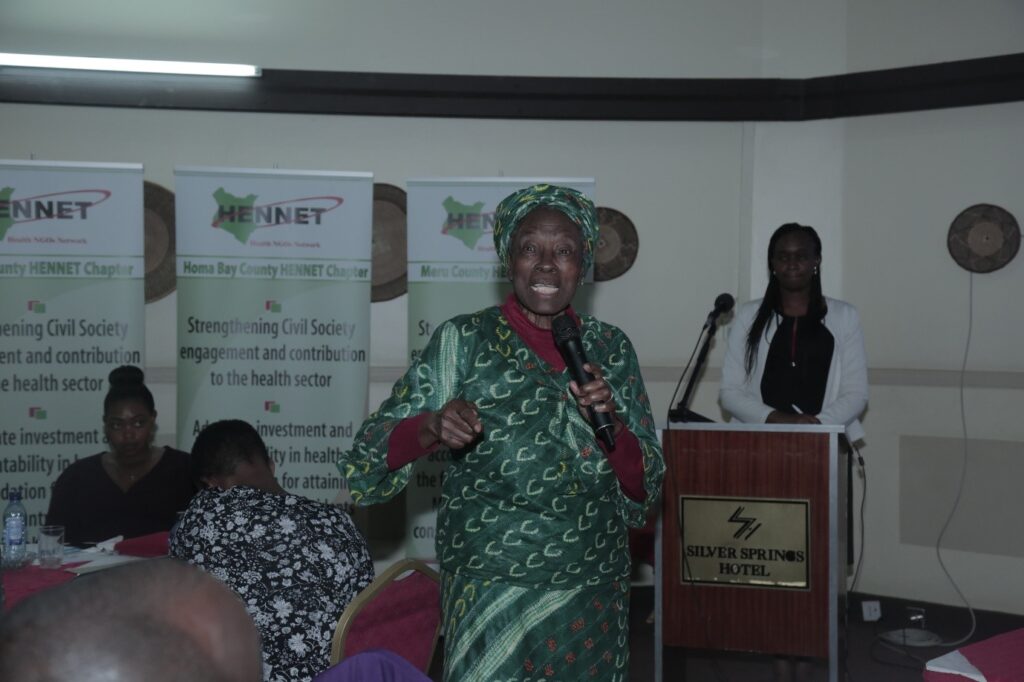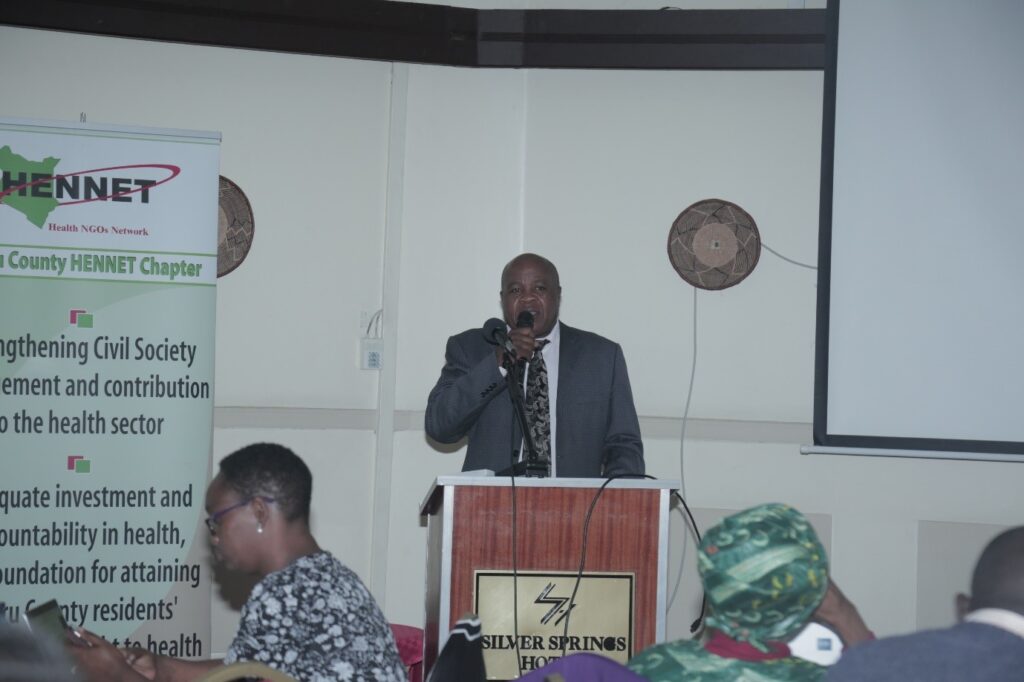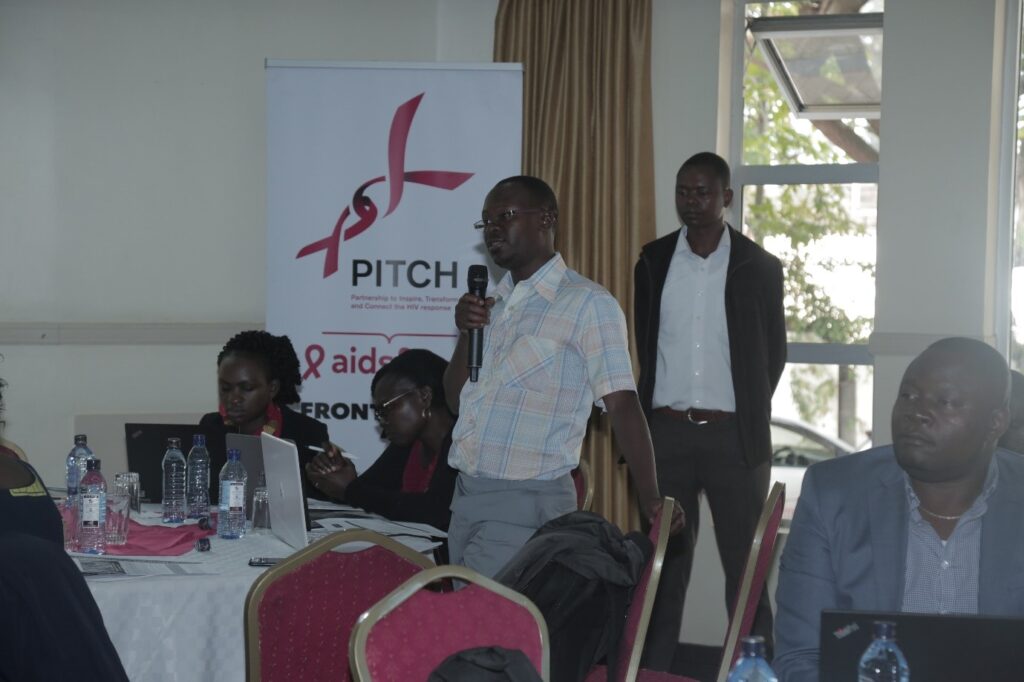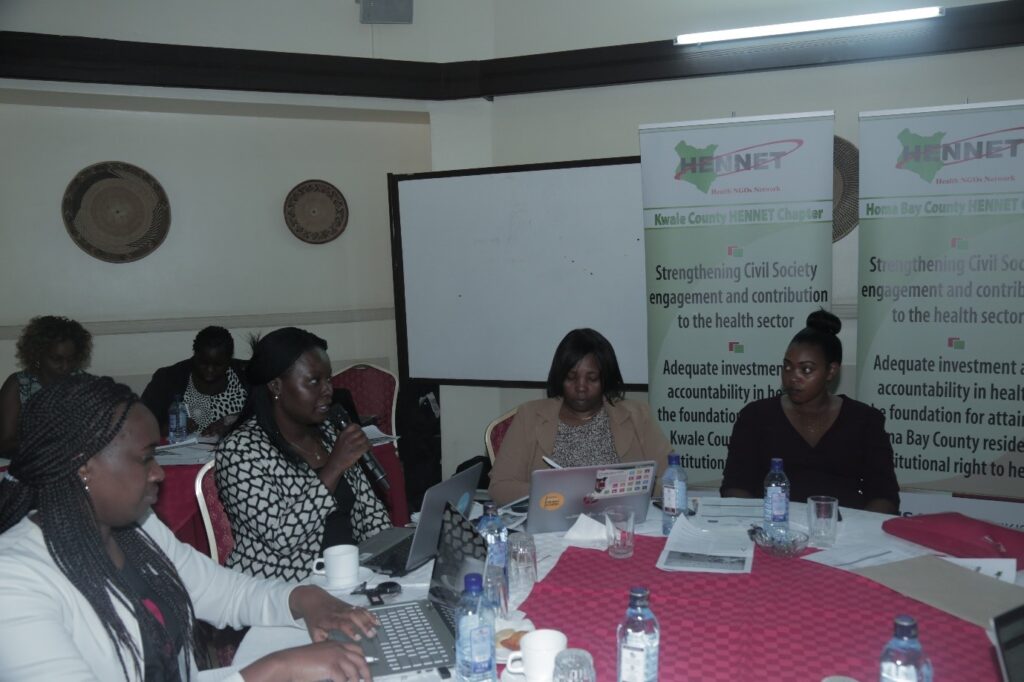The Health NGOs Network (HENNET), an umbrella organisation of 105 Kenyan health civil society organisations including Amref Health Africa in Kenya held a high-level meeting on 7 November 2019. The agenda of the meeting was to share a report on the UN UHC HLM from the Ministry of Health in Kenya.
Many of the world’s nations among them Kenya, have committed to achieve Universal Health Coverage (UHC) by 2030 as part of the 2030 Agenda for Sustainable Development. UHC is the access to safe, effective, quality and affordable essential health care. Through UHC, all individuals and communities can access the health care they require without suffering financial burden.
The United Nations General Assembly held a UN UHC High-Level meeting on 23 September 2019 to mobilise the global community and secure political commitment from Heads of State and Governments to accelerate progress towards achieving UHC by 2030. During the meeting, primary health care (PHC) was recognised as essential to achieving UHC. PHC promotes quality, people-centred services with a focus on prevention and promotion. Participants at UN UHC HLM adopted the Political Declaration for UHC which calls for scale-up of competent, skilled and motivated health workers.
“The Primary health care framework should offer promotive, preventive and first-line curative services. There is a need for strategies of collaboration with health facilities and community health workers in the implementation of primary health care,” urged Prof Miriam Were while speaking at the CSOs forum.
For UHC to be achieved there has to be an inclusion of community-based primary health care thus an urgency to prioritise community health programs and have these included in national health strategies. This will facilitate an increase in access and provide services aligned to the population. The programs are required to be rooted in quality and financial sustainability and communities need to be included in setting priorities and policies, as their voices are critical in defining what services they require and how they want them delivered.
Key highlights from the XSOs forum included discussions on how to scale-up UHC after Kenya’s pilot. The success of the rollout of UHC can be accelerated through collaboration and advocating across sectors. The engagement of the Ministry of Finance as a key player in the implementation of UHC was also discussed as there is a need to demonstrate the value of investments in the health sector.
The following were presented as approaches to apply in advocating to shape the UHC agenda at national level and county levels:
- Prioritising primary health care, including community health, as a key channel for delivering cost-effective, high impact health care to the most vulnerable populations
- Investing in enabling community health workers to do their jobs by providing them with adequate training, supervision, motivation/compensation and equipment
- Focusing on leveraging integrated leveraging platforms such as integrated community case management, which can deliver results across multiple health areas, generating efficiencies that drive costs down
- Identifying and supporting interventions, including task shifting, that drive high impact
- Staying outcome-focused and driving accountability by paying community health workforces and implementing partners based on performance
Recognising the value of technology in managing, monitoring and improving health programs, including supply chain management, as well as improving the quality and range of services to those at the last mile.




